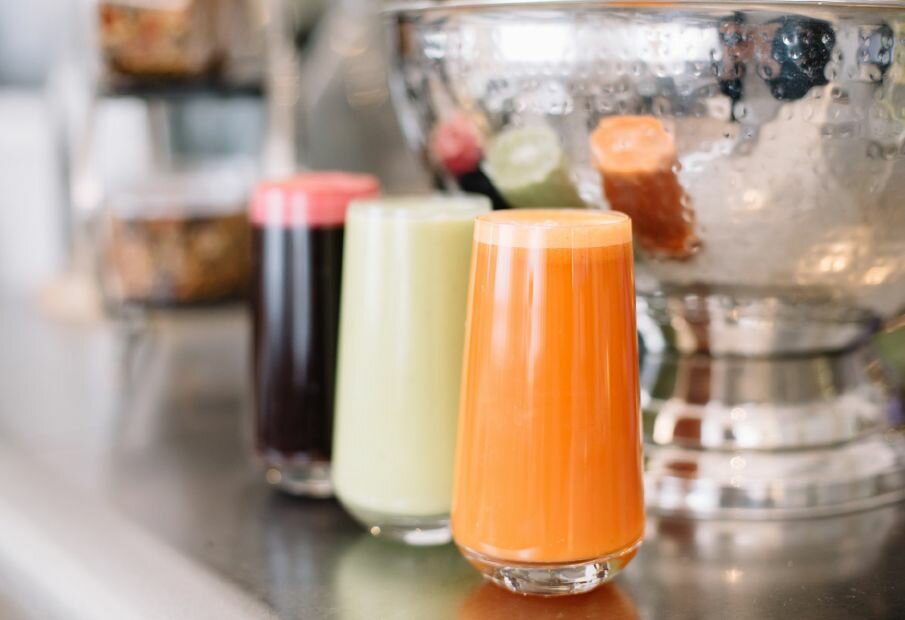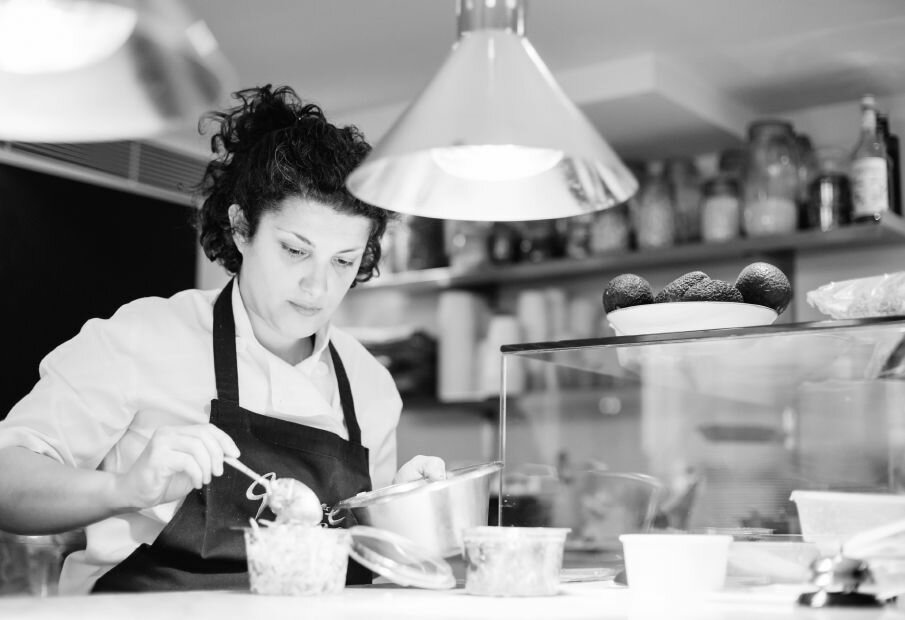Market Size & Growth
Understanding the size and growth trajectory of a market is fundamental to any successful business strategy. In the realm of luxury hospitality and wellness retreats, the United Kingdom presents a compelling landscape with distinct trends and opportunities.
Revenue Generation
The UK’s luxury hospitality and wellness retreats market is experiencing substantial growth, driven by increasing consumer demand for high-end experiences and an emphasis on well-being. This sector is characterized by a diverse range of offerings, from exclusive country estates to spa hotels and holistic wellness centers. The market size is estimated to be in the billions of pounds annually, with projections indicating continued expansion in the coming years.

Key Segments (e.g., spas, resorts, hotels)
Understanding the size and growth trajectory of a market is fundamental to any successful business strategy.
The UK’s luxury hospitality and wellness retreats market is experiencing substantial growth, driven by increasing consumer demand for high-end experiences and an emphasis on well-being. This sector is characterized by a diverse range of offerings, from exclusive country estates to spa hotels and holistic wellness centers. The market size is estimated to be in the billions of pounds annually, with projections indicating continued expansion in the coming years.
Key segments within this market include:
- Spas: Offering a wide range of treatments and facilities, spas continue to be a major draw for luxury travelers seeking relaxation and rejuvenation.
- Resorts: Combining accommodation with recreational activities, luxury resorts cater to a desire for immersive experiences, often incorporating wellness elements.
- Hotels: Upscale hotels increasingly incorporate wellness amenities and services, recognizing the growing demand for integrated well-being experiences within their offerings.
- Holistic Wellness Centers: Dedicated to promoting holistic health and well-being, these centers offer a variety of therapies, retreats, and educational programs.
Geographic Distribution (regional analysis)
Geographic distribution plays a significant role in understanding the dynamics of the UK luxury hospitality and wellness retreats market. London, with its world-class amenities and international appeal, remains a dominant hub for high-end experiences.
However, there is a notable trend towards growth in regional locations. Areas like the Cotswolds, Cornwall, and the Lake District are gaining popularity due to their picturesque landscapes, tranquil settings, and focus on authentic wellness offerings. These destinations appeal to those seeking a more secluded and immersive retreat experience.
The rise of domestic tourism and a desire for “staycations” has further fueled the growth of regional luxury retreats, providing an alternative to overseas travel while still offering high-quality experiences.
Consumer Trends
Understanding consumer trends is crucial for businesses operating in the UK’s luxury hospitality and wellness retreats industry. These trends reflect evolving preferences and priorities among affluent travelers seeking distinctive experiences that prioritize well-being and personal growth.
Demand Drivers (well-being focus, stress relief)
A key driver of demand within this sector is a growing focus on well-being. Consumers are increasingly prioritizing their mental and physical health, seeking out experiences that promote relaxation, rejuvenation, and stress relief.
This translates into a heightened interest in wellness retreats, spa treatments, mindfulness programs, and healthy dining options. Luxury hospitality providers are responding to this trend by incorporating more holistic wellness offerings into their packages and creating immersive experiences that cater to these evolving needs.
Target Demographics (age, income, lifestyle)
Target demographics for luxury hospitality and wellness retreats in the UK tend to be high-income earners, typically aged 35-65.
These individuals prioritize experiences over material possessions and are willing to invest in their well-being. They often have busy lifestyles and seek escapes that offer relaxation, rejuvenation, and a sense of personal growth.
Lifestyle considerations are also important. This demographic may include professionals, entrepreneurs, or retirees who appreciate high-quality service, personalized attention, and exclusive amenities.
They value authenticity, sustainability, and a connection with nature, often seeking retreats in idyllic locations that offer opportunities for mindful activities and cultural immersion.
Emerging Preferences (personalized experiences, sustainability)
Consumer trends are shifting towards personalized experiences and sustainability. In the context of luxury hospitality and wellness retreats, this translates into a desire for tailored itineraries, bespoke treatments, and immersive cultural experiences.
Travelers are increasingly seeking out retreats that align with their values, such as those focused on ethical sourcing, local community engagement, and environmental responsibility.
Competitive Landscape
The UK’s luxury hospitality and wellness retreats market is a dynamic landscape characterized by substantial growth, fueled by increasing consumer demand for high-end experiences and a focus on well-being.
Major Players & Market Share

The UK luxury hospitality and wellness retreats market is highly competitive with several major players vying for market share. These include established international hotel brands with dedicated wellness offerings, independent luxury boutique hotels, and specialized wellness retreat centers.
Some of the key players in this market include:
- The Dorchester (London)
- Four Seasons Hotel Hampshire
- Chewton Glen
- Lympstone Manor
- Sen Spa
- The Scarlet
- Babington House

While precise market share figures are often difficult to obtain, these players collectively command a significant portion of the market. Smaller boutique hotels and specialized retreats also contribute to the diversity and competitiveness of the landscape.
Brand Positioning & Differentiation
Brand positioning and differentiation are crucial for success in this competitive market. Luxury hospitality and wellness retreat providers must clearly articulate their unique selling propositions (USPs) to stand out from the crowd.
Key differentiators include:
- Specialization: Focusing on a specific niche, such as yoga retreats, spa treatments, or holistic therapies, can attract target audiences seeking specialized experiences.
- Location and Ambiance: Unique settings, whether it’s a coastal retreat, a secluded countryside estate, or a historic manor house, contribute to a distinctive brand identity.
- Experiential Focus: Offering immersive experiences that go beyond traditional amenities, such as curated excursions, wellness workshops, or personalized consultations, enhances value and creates lasting memories.
- Sustainability Practices: Emphasizing environmental responsibility and ethical sourcing resonates with increasingly conscious consumers.
- Personalized Service: Providing tailored itineraries, bespoke treatments, and attentive staff who anticipate guest needs fosters a sense of exclusivity and individual care.
Key Partnerships & Collaborations
The UK’s luxury hospitality and wellness retreats market is highly competitive with several major players vying for market share. These include established international hotel brands with dedicated wellness offerings, independent luxury boutique hotels, and specialized wellness retreat centers.
Some of the key partnerships & collaborations in this market include:
- Wellness Brand Partnerships: Retreats often partner with renowned wellness brands to offer exclusive treatments, products, or programs. This can include collaborations with spas, fitness studios, nutritionists, or holistic therapy practitioners.
- Local Businesses & Communities:
Building relationships with local farmers, artisans, or tour operators allows retreats to offer authentic experiences that support the surrounding community. - Technology Providers:** Integrating technology platforms for booking, communication, and personalized guest experiences enhances efficiency and convenience.
Challenges & Opportunities
The UK’s luxury hospitality and wellness retreat market presents a compelling landscape of opportunities and challenges. While strong consumer demand drives substantial growth, intense competition requires businesses to differentiate themselves through unique offerings and strategic partnerships.
Economic Factors & Inflationary Pressure
One major challenge facing the industry is managing inflationary pressure. Rising costs for labor, materials, and energy are squeezing profit margins. Retreats may need to carefully adjust pricing strategies or explore ways to optimize operational efficiency to maintain profitability in this environment.
Another challenge stems from attracting and retaining qualified staff. The hospitality sector has faced ongoing staffing shortages, and luxury retreats, with their specialized requirements, can be particularly vulnerable. Offering competitive compensation packages, professional development opportunities, and a positive work culture will be crucial for attracting and retaining top talent.
Moreover, the industry needs to adapt to evolving consumer preferences and expectations. Sustainability is becoming increasingly important to travelers, who are seeking eco-friendly practices and responsible tourism initiatives. Retreats that embrace sustainability as a core value will resonate with this growing segment of conscious consumers.
The rise of technology also presents both opportunities and challenges. While technology can enhance guest experiences through personalized offerings and efficient service, it can also lead to increased dependence on digital platforms. Maintaining a balance between technology integration and the human touch will be essential for creating authentic and memorable experiences.
Sustainability Concerns & Practices
The UK luxury hospitality and wellness retreats market is characterized by strong growth fueled by consumer demand for high-end experiences and well-being.
Sustainability concerns are increasingly important to travelers, who seek eco-friendly practices and responsible tourism initiatives. Retreats that prioritize sustainability through reduced environmental impact, ethical sourcing, and community engagement will gain a competitive edge.
To address these concerns, luxury retreats are implementing various sustainable practices:
- Energy Efficiency: Utilizing renewable energy sources, improving insulation, and adopting energy-efficient appliances to minimize their carbon footprint.
- Waste Reduction: Implementing composting programs, minimizing single-use plastics, and encouraging recycling.
- Water Conservation: Installing low-flow fixtures, utilizing rainwater harvesting systems, and promoting water-saving practices among guests.
- Local Sourcing: Partnering with local farmers and producers to source food and beverages, reducing transportation emissions and supporting the regional economy.
- Responsible Wildlife Conservation:
Engaging in conservation efforts to protect local wildlife habitats and promote biodiversity.
Technological Advancements & Innovation
Technological advancements are transforming the landscape of the UK’s luxury hospitality and wellness retreats industry, presenting both opportunities and challenges.
One significant opportunity lies in personalized guest experiences. Artificial intelligence (AI) and data analytics can be used to tailor itineraries, recommend treatments, and anticipate guests’ needs, creating a more bespoke and immersive experience.
Virtual reality (VR) and augmented reality (AR) technologies are also emerging as tools for enhancing guest engagement. VR can offer virtual tours of the retreat, allowing potential guests to explore facilities and amenities from afar, while AR can provide interactive experiences within the physical space, enriching their understanding of local culture or wellness practices.
Online booking platforms and mobile applications are streamlining the reservation process, making it more convenient for guests to plan and book their retreats. These platforms also enable seamless communication between guests and staff, allowing for efficient check-in, personalized recommendations, and real-time support.
Automation technologies can optimize operational efficiency by automating tasks such as scheduling, cleaning, and concierge services. This frees up staff to focus on providing more personalized and attentive service to guests.
However, technological advancements also present challenges. Ensuring data security and privacy is paramount, as retreats handle sensitive guest information. Robust cybersecurity measures are essential to protect against data breaches and maintain trust with guests.
The rapid pace of technological change requires continuous investment in training and development to equip staff with the skills needed to effectively utilize new tools and technologies. Finding the right balance between automation and human interaction is crucial to maintaining the personalized touch that defines luxury hospitality.
Future Outlook
The future of the UK’s luxury hospitality and wellness retreats market appears bright, driven by persistent consumer demand for high-end experiences and an increasing focus on well-being. However, key trends will shape its trajectory in the coming years, presenting both opportunities and challenges for businesses operating in this competitive landscape.
Projected Growth Rate
The UK luxury hospitality and wellness retreats market is projected to experience continued growth, with a compound annual growth rate (CAGR) estimated to be in the range of 5% to 8% over the next five years.
Growth Strategies (expansion, diversification)
To capitalize on this growth, luxury hospitality and wellness retreat providers need to embrace innovation and adapt to evolving consumer preferences.
Expansion strategies can include:
- Geographic Diversification: Exploring new locations within the UK that cater to specific target audiences. This could involve expanding into emerging regions with high-growth potential or targeting niche markets seeking unique experiences.
- Product Diversification: Developing new retreat packages and services that cater to diverse interests and needs. Examples include specialized wellness retreats focused on specific therapies, fitness programs, culinary experiences, or cultural immersions.
- Partnerships & Collaborations: Forming strategic alliances with complementary businesses such as spas, fitness studios, local attractions, or travel agencies to enhance offerings and reach a wider audience.
Further diversification can also involve:
- Creating Hybrid Offerings: Blending traditional retreat formats with alternative models, such as shorter stays, weekend getaways, or day spa experiences. This caters to a broader range of time constraints and budgets.
- Online Presence & Virtual Experiences:
Expanding online platforms to offer virtual wellness programs, consultations, or workshops that can be accessed remotely.
Ultimately, success in the UK’s luxury hospitality and wellness retreats market will depend on a keen understanding of consumer trends, a commitment to innovation, and a dedication to creating truly exceptional experiences that prioritize well-being, personalized service, and sustainability.
Impact of Industry Disruptions (e.g., travel trends)
Future Outlook:
The UK luxury hospitality and wellness retreats market is poised for continued growth, driven by several key factors:
* **Increased Demand for Well-being:** Consumers are increasingly prioritizing mental and physical health, seeking retreats as a means to relax, rejuvenate, and improve their well-being.
* **Rise of Domestic Tourism:** The popularity of “staycations” is fueling demand for luxury experiences within the UK.
* **Emphasis on Personalized Experiences:** Travelers seek unique, tailored itineraries and bespoke services that cater to their individual needs and preferences.
Impact of Industry Disruptions:
Several industry disruptions will shape the future of the market:
* **Technological Advancements:**
* AI and data analytics can personalize guest experiences.
* VR/AR technologies can enhance engagement and create immersive experiences.
* Automation can streamline operations, freeing staff for more personalized service.
* Security concerns require robust cybersecurity measures to protect guest data.
* **Sustainability Concerns:** Consumers are demanding eco-friendly practices from hospitality providers. Retreats that prioritize sustainability will gain a competitive advantage.
* **Staffing Challenges:** The industry faces ongoing staffing shortages. Attracting and retaining qualified staff requires competitive compensation, professional development opportunities, and a positive work culture.
Fitness and wellbeing
Mocha Kid Magazine
Resilience Medicine Clinics
- Xela Rederm Skin Booster Treatments Near Send, Surrey - January 6, 2026
- Xela Rederm Skin Booster Treatments Near Croydon, Surrey - January 4, 2026
- Why Vista Edge Vape Is A Premium Choice For Experienced Vapers - January 2, 2026
